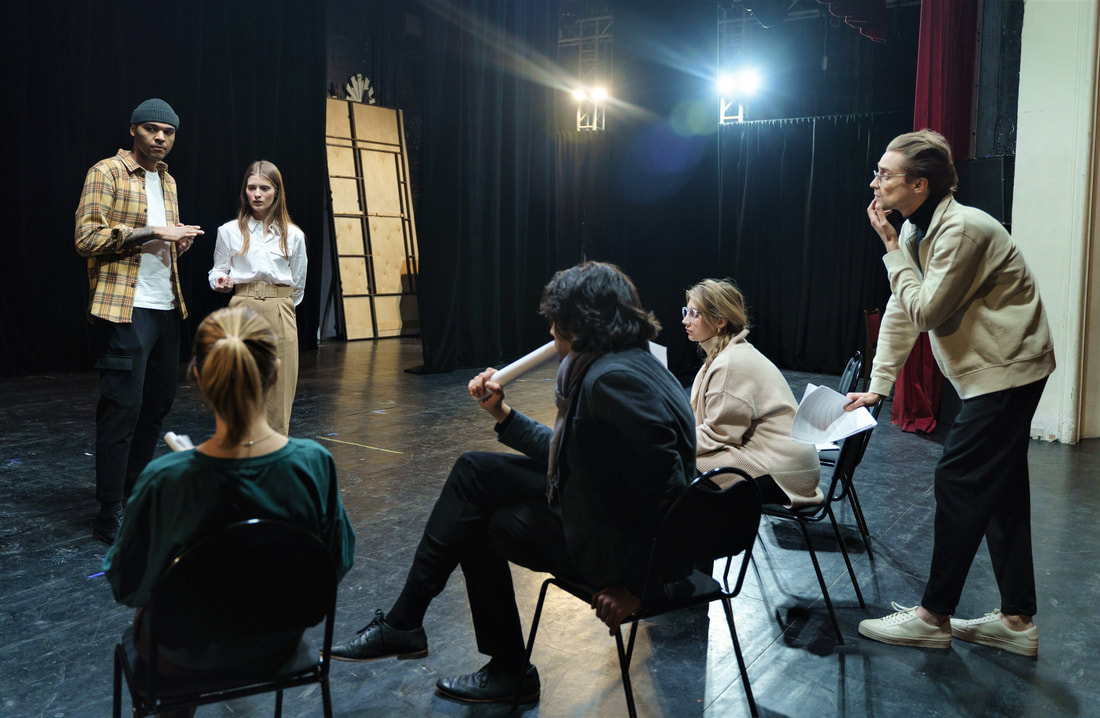|
I spent 5 years learning French, 4 years learning German, 3 years learning Greek, 2 months learning to teach English and 1 year learning Hebrew. I've also learned a smattering of words and phrases in languages as diverse as Japanese, Arabic, Spanish, Filipino and BSL. Whereas traditional language-learning often focuses primarily on vocabulary, grammar and pronunciation, I find myself especially interested in social-psychological dimensions such as confidence, context and culture. Manoeuvring between languages often calls for a nuanced interpretation rather than simple translation, paying attention to, say, intention, meaning and relationship before mechanics like spelling or word order. I find there are similar dynamics at play in other (and equally-complex) human-relational arenas such as leadership, teamwork, coaching and facilitation. Psychoanalyst Carl Jung commented astutely: ‘Learn your theories as well as you can, but put them aside when you touch the miracle of the living soul.’ Textbook techniques will take us so far, yet real transformation often emerges through the sensitive manifestation of human-spiritual qualities in our relationships and practice including: presence, contact and trust. This calls us continually to explore questions such as, ‘What does this person (or group) need in this situation at this time?’ This is very different to a simple, ‘If X, do Y.’ As we enter the New Year, I’m aware of so many complex challenges that are impacting dramatically on people, communities, organisations, nations and the entire natural-environmental ecosystem. In such circumstances, it can be tempting to grasp hold of simplistic, mechanistic solutions that, we hope, will help us to feel less anxious, less vulnerable and less out-of-control. We may risk closing in on ourselves to defend and protect those beliefs, behaviours and interests that provide us with a sense of reassurance, safety and security. In 2023, I hope and pray, with open mind and heart, that I will stay close to the call-principles that guide my practice: prayer, presence, participation. How about you? Happy New Year! Light shines in darkness. We can be hope.
16 Comments
'Our value is the sum of our values.' (Joe Batten) Values Values are a representation of who or what matters most to us at the deepest levels. They are often held subconsciously and can have strong emotional attachments. We may discover what our true values are if we encounter a person or situation that clashes with them, triggering a strong reaction. We can also discover our values by looking at who or what we choose freely to spend our time, energy and resources on; that is, without pressure or coercion from elsewhere. Our values guide our instinctive, free personal choices, priorities and behaviours; often without us realising it. This raises interesting and important questions when we consider how best to introduce or change an organisation’s values. It we seek to superimpose organisational values onto people by presenting, selling, trying to convince etc, it can provoke considerable resistance. The resistance may stem from at least two sources: (a) the imposition conflicts with people’s desire (that is, their underlying value) for e.g. autonomy, and/or (b) the organisation’s chosen values don’t resonate with people’s actual values and are, therefore, met with apathy or superficial assent, and fail to gain traction or buy-in. Culture We can think of culture in many different ways. At its simplest, behavioural level, we can think of it as ‘the way we do things around here.’ At a deeper level, we can think of it as a pattern of shared beliefs and assumptions that outwork themselves in shared patterns of behaviour in teams, groups or organisations. I heard someone say it is, perhaps, comparable (metaphorically) to what happens when cogs in gearbox (cf people, teams, departments) synchronise with one-another. Culture isn’t simply the property of one cog alone: it’s a property of the operation of the mechanism as a whole. Except that, in some very important respects, it isn’t. A gearbox can be a highly complex mechanism with multiple, different components engaging with each other in a very sophisticated configuration and sequence. Yet, all things being equal, the gearbox will always operate in the same, fixed and predictable ways according to its design. By contrast, a human person, team, group or organisation is dynamically-complex. This means that the ‘components’ can shift unpredictably in, for instance, energy, behaviour and relationship depending on, say, their beliefs, values, moods or motivations. Change Step one: So, how then can leaders enable and achieve a shift in values or culture? The first step is to listen very carefully to who or what matters most to people already. This can feel like looking and listening for the implicit subtext behind what people and groups say and do. One of the most powerful ways to do this is to invite people to engage in a process of Appreciative Inquiry (AI). I say ‘invite’ consciously to avoid triggering resistance based on a desire for autonomy (above). An independent facilitator of the process can help convey openness and neutrality; vs something ‘done to’ people by management. AI has four phases, often done as a 1-day event with everyone involved, working together in teams or mixed groups in the same room at the same time. The first phase invites people in small groups to share stories of real examples of peak experiences at work: ‘When have we been at our best?’ The second focuses on participants’ aspirations for the future: ‘What do we want it to be more like at work, more of the time?’ The third focuses on design: ‘What would need to happen, practically, for that to happen?’ The final phase focuses on commitment: ‘What would we be willing to do?’ The first two phases are designed to surface implicit values. The second two phases are designed to identify desirable cultural traits. Having completed the AI process (above), the facilitator invites people to compare and contrast the values and culture they have surfaced and pointed towards through the AI, with corporate values and desired culture. In my experience, it is unusual for people to object to anything in typical corporate values, even if they pay little attention to them. However, seeing if-how their own personal values correlate with the organisation’s values can engender engagement. Step two: The next step involves working with people to identify critical balancing qualities in the values and desired culture. For instance, imagine a mission statement that includes both (a) customer-focused and (b) respect for employees. An organisation needs to hold both in tension. On the one hand, this could mean it is willing to fulfil customer demands insofar as, in doing so, it upholds its respect for its employees. On the other hand, it will recognise and affirm its employees (and thereby demonstrate respect), insofar as they are customer-focused in their work. A leadership role is to ensure balance. Step three: The next step involves working with people to identify where current behaviour and practice is consistent with the values and desired culture, and where there are gaps or inconsistencies. Where gaps or inconsistencies are identified, leaders can engage with people in conversation about (a) which are most important, (b) what lays behind them, and (c) what it would take to close the gaps or resolve the inconsistencies. Leaders can then focus on recognising and affirming where they see the values and desired culture being outworked in practice, including publicly for positive reinforcement. Step four: The final step involves working with people to explore how to embed the values and desired behaviours in all of the organisation's core people-related dimensions, e.g. recruitment; selection; goal-setting; supervision; appraisal; recognition; reward; promotion; team meetings; inter-departmental working; leadership decision-making; communications; customer/beneficiary engagement; and managing relationships with clients, suppliers etc. Leaders need to model the values and desired culture in how they approach each of these steps (above), and to invite and affirm honest feedback on route. Curious to discover how I can help you with values and culture change? Get in touch! This is a thought experiment. I choose these words deliberately, because a spirit of experimentation lays at the heart of Gestalt practice. It’s about learning by doing rather than, say, learning by thinking or learning by talking. That marks it out from conventional ways of coaching, facilitation and action learning (AL). It’s about trying something new, seeing what surfaces into awareness as we do so, then noticing any shift in our stance in relation to an issue we’re grappling with. It can be revealing, radical and powerful. Picture this. During an AL bidding round, each person depicts physically the essence of an issue that they’d like to work on. This could be, say, by standing and posing or acting out a scenario; drawing or painting a picture for the group to see; sharing an object that, for them, carries particular resonance with the issue they’re facing; presenting a song, poem, or piece of prose that expresses the core of the issue and any feelings they hold around it. The group then moves onto choosing a presenter. The choice of presenter could be influenced by, say, the felt sense of imminence or urgency in what a person has depicted; the degree of complexity that emerged as they sought to depict different dimensions; the scope for experimentation with actual changes in what that person portrayed. This would feel different to an ordinary rational evaluation of the relative merits of different bids and, instead, would call for courageous sharing of empathy, intuitions and gut-instinct discernment. At the exploration stage, the peers in the set would pose questions and reflections physically, by doing something that invites reflection and response from the presenter. This could be, for instance, to stand with the presenter, mirror his or her pose and ask them what they notice; move with the person to physical places where they can view their picture from a range of different angles; invite the person to act out any metaphors they had used in a song or poem then to see what emerges. Moving between exploration and action stages, the set would invite the presenter to try things imaginatively that could stretch the scenario and themselves in relation to it. This could involve, for instance, inviting the presenter to experiment with radically different poses to find one that best represents the stance they want to take; making drastic changes to the picture and noticing how that feels; reciting the song or poem using opposite metaphors to those they had used originally. This challenge phase of the Gestalt process is sometimes described as co-creating a ‘safe emergency’ with the presenter. It allows him or her to experiment with and experience, say, moving between extremes, or to very different places (physically; psychologically; systemically; emotionally) to where they might naturally prefer or default to. It enables them to push their own boundaries; to speak what may ordinarily feel unspeakable for them, to do what may normally feel un-doable for them. The final action stage would involve inviting the presenter to depict physically, say, their aspiration in relation to the issue they have presented; the physical stance that best represents that aspiration for them; any obstacles or enablers that they could envisage on route – using physical objects in the room (e.g. chairs) to represent them – then physically navigating through them; or physically to take what they choose as their next steps, adopting the posture or stance they will take as they do so. What have been your experiences of using Gestalt in Action Learning? I’d love to hear from you! [See also: Toys; Crab to dolphin; Let's get physical] 'The first Advent was the embodiment of God's peace plan.' (CMEP) Advent is the anticipation of an arrival. Not just any arrival, but a re-living of the first arrival of Jesus Christ in this world. It’s also a looking forward in anticipation to the re-arrival of this Jesus in the future. In this sense, Christmas, for Christians, represents a fundamental pivotal event, a radical Kairos moment in human history. Against that backdrop, a Nigerian visitor commented in astonishment at how, in the UK, the Christmas miracle appears to have been drained of all life, vitality and meaning. We seem to have exchanged this amazing earth-shattering event for superficial, glittery materialism. Some Iranian friends asked me to explain what Christmas does mean for Christians. What’s its significance for us now? I drew on Francis Spufford’s words in Unapologetic (2012) that, if we look honestly at our own lives and across the world today, we can see evidence of the ‘human propensity to f*** things up’ everywhere. In biblical language, that’s the impact of sin (an unpopular word and concept today!). In essence, Jesus came to save us from it, to reconcile us to God and, that way, to transform humanity. We can see the effects of authentic spiritual transformation in people’s lives: ‘Mine was a happy family. I had one brother and one sister, but I do not like to talk about it. It is not important now. The important thing is to follow God’s way, the way he leads us to do something beautiful for him.’ (Mother Teresa) ‘Like anybody, I would like to live a long life. Longevity has its place. But I'm not concerned about that now. I just want to do God's will. He's allowed me to go up to the mountain top. And I've looked over. And I've seen the Promised Land.’ (Martin Luther King) ‘I have lost everything. Now I just want to know Christ, to become like him’. (Paul in Philippians, the Bible) For me, Advent is a period of critical reflection on my own faith and stance in the world, to consider how far I’m allowing God to arrive in and transform my life. As we approach the New Year, I think of Advent as preparation to venture out on a new advent-ure in faith, to discover God afresh who arrives there before us. ‘I’m not saying that I have this all together, but I am well on my way, reaching out for Jesus who has so wondrously reached out for me. I’ve got my eye on the goal where God is beckoning us onward – to Jesus. I’m running and I’m not turning back.’ (Paul in Philippians, the Bible) What does Advent mean to you? May God give you peace and hope. [See also: Arrival; Advent; Discovering our true selves] ‘Life for him was a mirror in which he saw only himself, rather than a window through which he saw other selves.’ (Martin Luther King) I heard a psychologist once ask, ‘When you see a group photo with yourself in it, which face do you look for first?’ There are various theories that seek to explain why we seem instinctively to scan for our own face; for example, ‘Do I look how I want to look?’; ‘How do I look compared to other people in the photo?’; ‘If someone else saw this photo, would they think I look interesting and attractive?’ Perhaps it’s sometimes borne out of anxiety, sometimes out of curiosity, sometimes out of vanity. Some psychologists believe this phenomenon may be rooted in the idea that, for each of us, our self is the essential locus of our direct experience. After all, everything I perceive and experience is from my own standpoint and filtered through and influenced by my own senses, beliefs and values etc. Although different philosophies and cultures hold different notions of self (an intriguing theme explored further by Vivien Burr in Social Constructionism, 2015), it’s still I who am typing this blog. Martin Luther King (Strength to Love, 1963), reflected on this question of self in relation to Jesus’ parable of a rich fool. He interpreted it spiritually and ethically as a problem of self-centredness and hard-heartedness to God, and to the needs of others. Alexander Betts & Paul Collier (Refuge, 2018) use similar language in their critique of certain dimensions of refugee policy, the product of a ‘heartless head’. The core issue here is not of seeing ourselves. It’s a risk of seeing only ourselves. ‘Think of your techniques as toys rather than tools.’ (Brian Watts) This was an insightful, inspiring and innovative coach who had a gift for working at the learning edge, the leading edge, the sometimes bleeding edge. I had the pleasure of working with him as a close colleague and as a client. For me, it was a profound, at times disconcerting, and yet often invigorating learning experience. It challenged my ingrained, default ways of thinking about and doing my work. It also gave me my first experiential taste of the power of Gestalt. His approach started with a simple and open invitation, ‘Be free, creative and experimental. See what happens. Let the child play!’ His conviction was that transformation takes place (a) through experiential learning, and (b) at what is, for the client, his or her own learning edge. It’s that frontier horizon at which we place our self- and culturally-imposed limits. It’s the stretched and stretching place where we may discover our own subconscious psychological defences too. I talked about a forthcoming meeting with an executive team. I was new in my career and found the anticipation of this encounter very anxiety-provoking. The coach invited me to leave the room, then to step back in as if entering the executive meeting room itself. When I did so, he observed (to my surprise) that I was holding my hand across my chest, as if protecting my heart. ‘How would it be if you were to reveal your heart in that meeting?’ I did so, and that transformed everything. In the creative, experimental spirit that lays at the heart of Gestalt coaching, he reminded me, ‘Sometimes these things will fall flat. It’s always a leap of faith.’ It’s a suck-it-and-see approach: try something new and see what may emerge into awareness. It taught me that learning has rational, emotional, intuitive, imaginative and somatic dimensions. I discovered I stand to learn most when I take a risk, when I dare to step out and beyond my natural-instinctive learning mode. Curious to experience the power of Gestalt? Get in touch! [For more examples of Gestalt coaching in practice, see: Just do it; Crab to dolphin; Let's get physical] |
Nick WrightI'm a psychological coach, trainer and OD consultant. Curious to discover how can I help you? Get in touch! Like what you read? Simply enter your email address below to receive regular blog updates!
|









 RSS Feed
RSS Feed